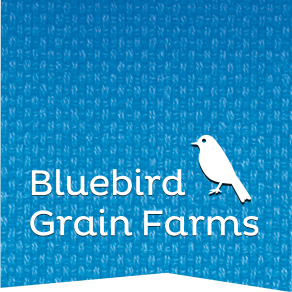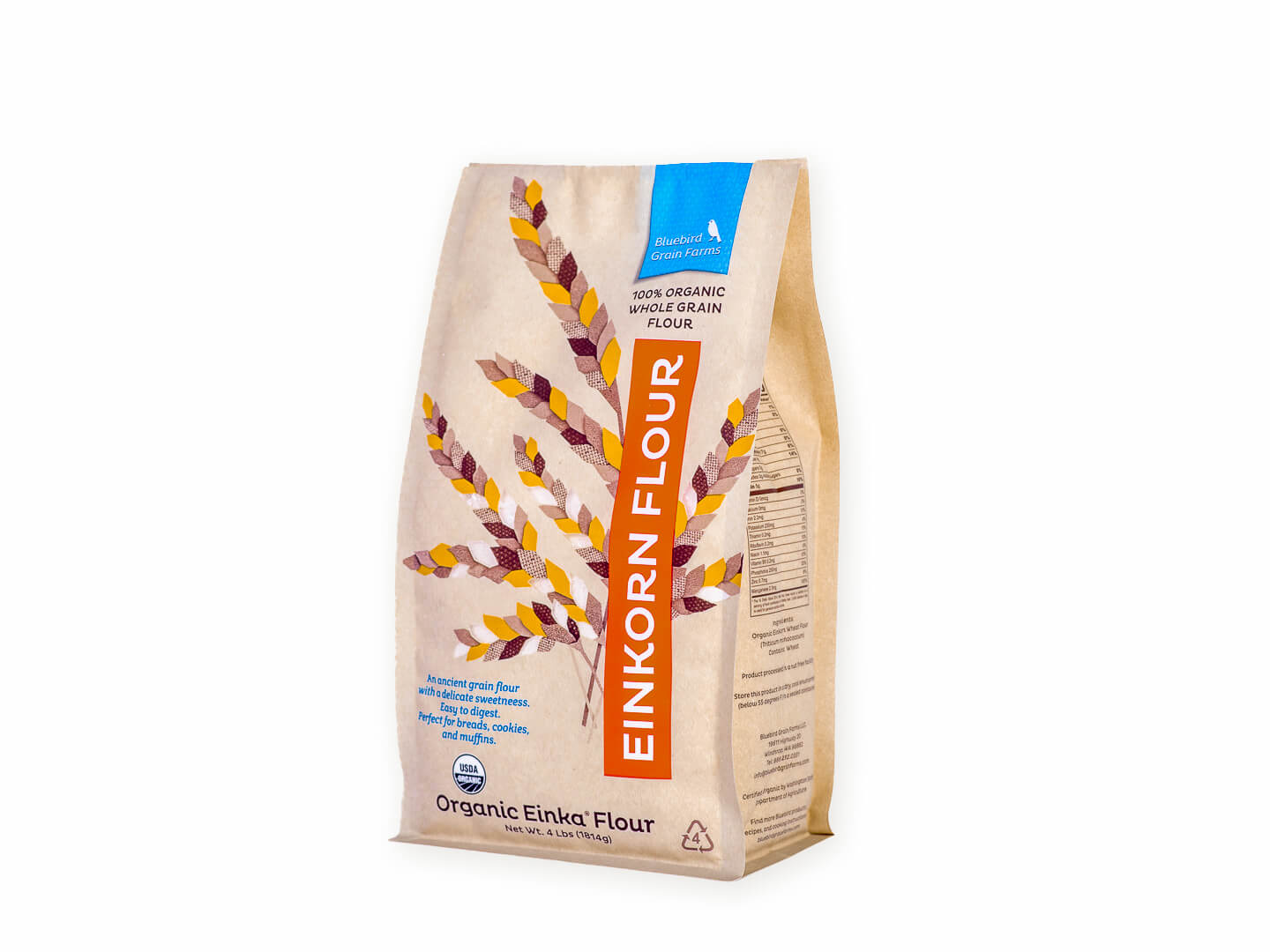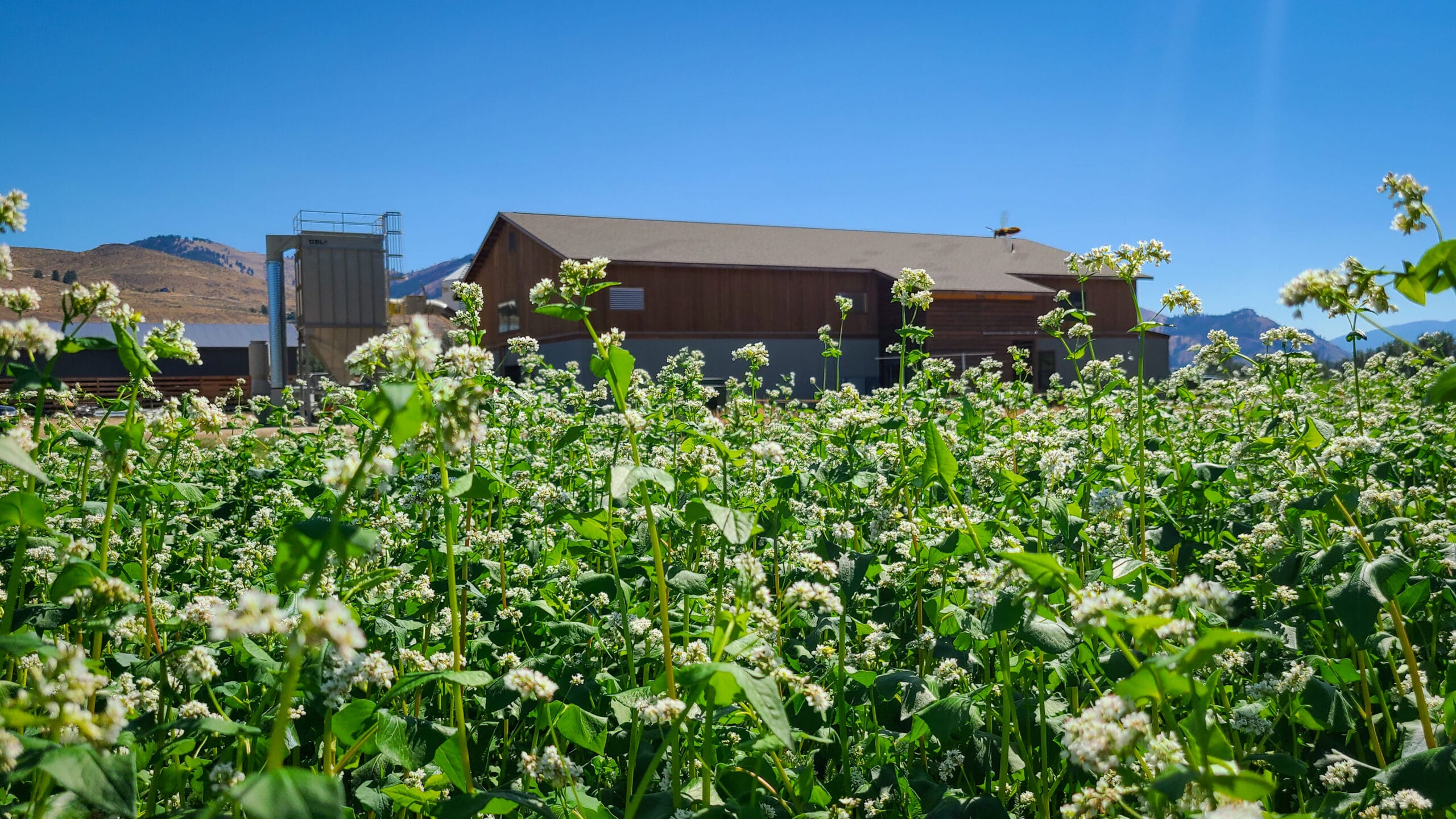
Farming Partners & Practices
Living soil best propagates life.
Overview
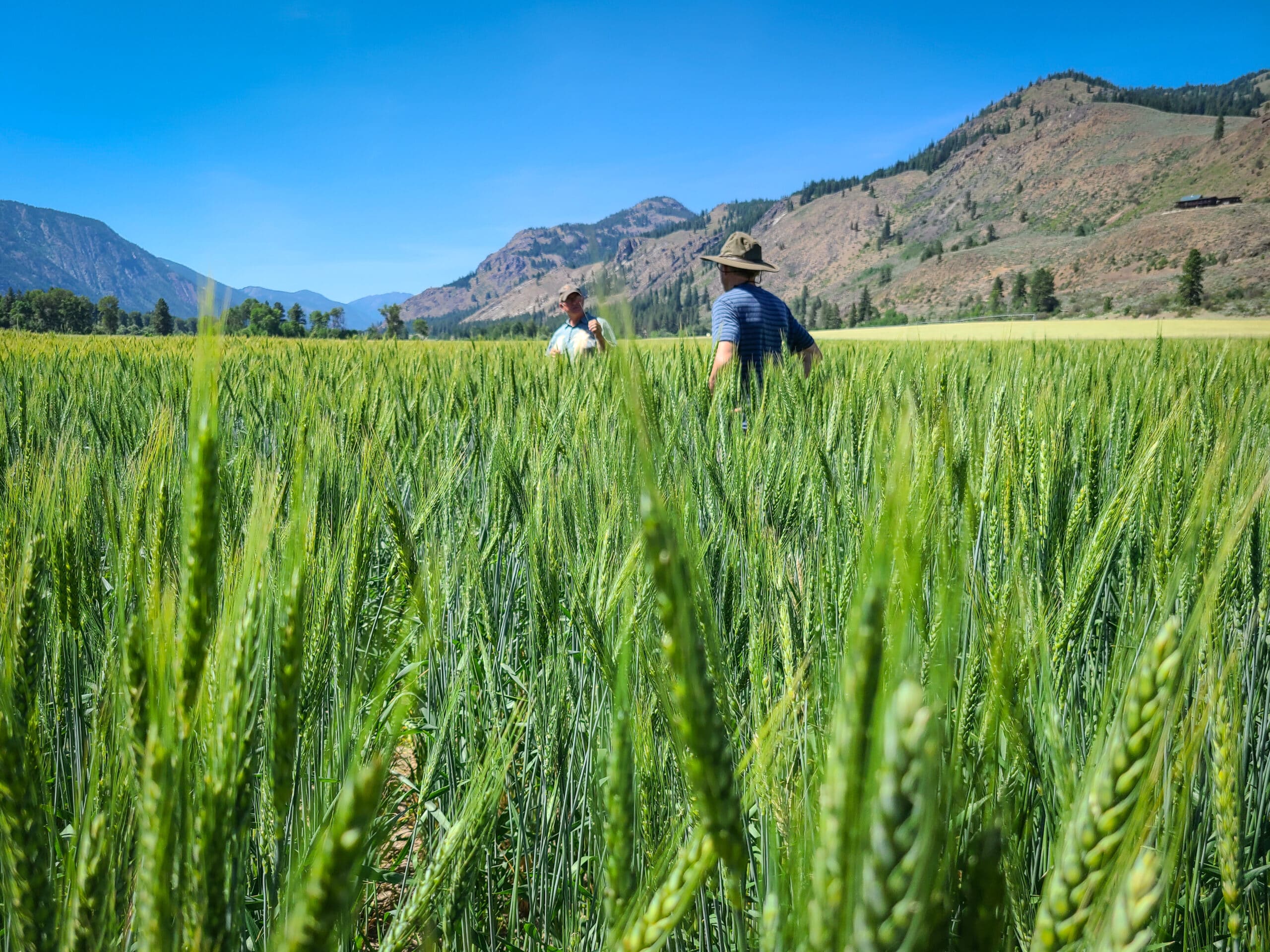
Farmer Blaine and farmer Sam looking at the Methow Hard Red Wheat crop at Big Valley Ranch, Washington State.
Bluebird Grain Farms partners with two other long-standing certified organic farms to help match our demand. Our signature ancient wheats – emmer, einkorn – have led us to offer the third hulled wheat, spelt. Besides our full line of the three hulled wheats, we also grow and mill four heritage varieties: Heritage Sonora soft white wheat, Pasayten hard white and Methow hard red wheats, and Heritage Rye.
We are proud to have partnered with Brad Bailie at his Lenwood Farms in Connell, Washington, and Blaine and Kent Schmaltz from Schmaltz Family Farms in Rugby, North Dakota. These two farms have been as dedicated to the land, soil health, and organic production for as long – if not longer – than we have. They also have similar experience in growing out the three ancient wheats: Emmer, Einkorn and Spelt. These larger farms strive to be as efficient as possible while working closely with nature to successfully grow the highest quality crops. True Regenerative Agriculture is organic and true organic agriculture should be regenerative. We feel that certifications aside, it really is that simple. While Brad relies on heavy cover-cropping systems to grow his nutrients under an irrigated system more like what we do up here at Bluebird, Blaine – a godfather of Regenerative Agriculture – and son Kent rely not just on cover cropping for their nutrient needs, but on continuous cropping on their lighter soils, with a long crop rotation that they implement with a minimal till system.
To walk Schmaltz Family Farm where our emmer and spelt is grown, is to walk in the land of biology. Astounding, really. To walk Lenwood Farms where most of our wheat and einkorn is grown, is to enter the sweetened world of Green Cropping. Both Farms walk the talk and have a dedication that never waivers. We are also happy to report that the Schmaltz Family Farm is also third party Certified ‘”Regenified” farm. To call them kindred spirits to Bluebird is an understatement. We LOVE these guys, and are both humbled and honored by our relationship. As the phrase goes, they “get it!”
Soils
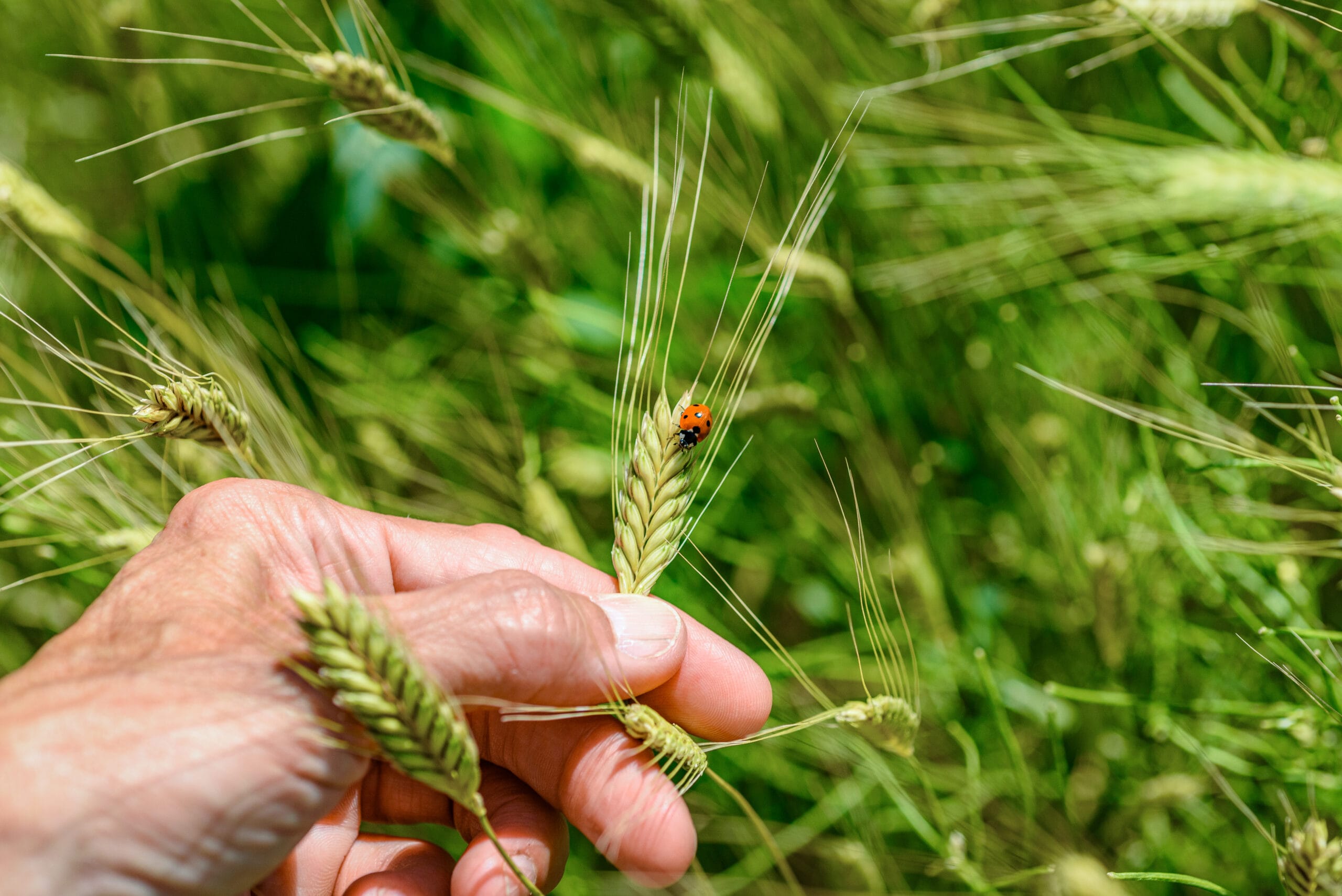
There are a variety of ways and numerous details involved in keeping soils healthy. In the end it all comes down to biology. Soils that are heavy with biological activity are heavy with life. Without live soil, we can’t expect to reap living food. On our own farm we have relied on cover cropping with legumes to grow back nitrogen. We’ve grown out mid-summer buckwheat to increase available potassium. We’ve fed cold pressed liquid fish and some compost to both our crops and soil to boost biology. We’ve accompanied this with other organic minerals to maintain available crop nutrients. At harvest, we leave all crop residue behind and do not take off straw or anything else from the fields. Residue, with correct biology, becomes our future soil.
Farming Practices
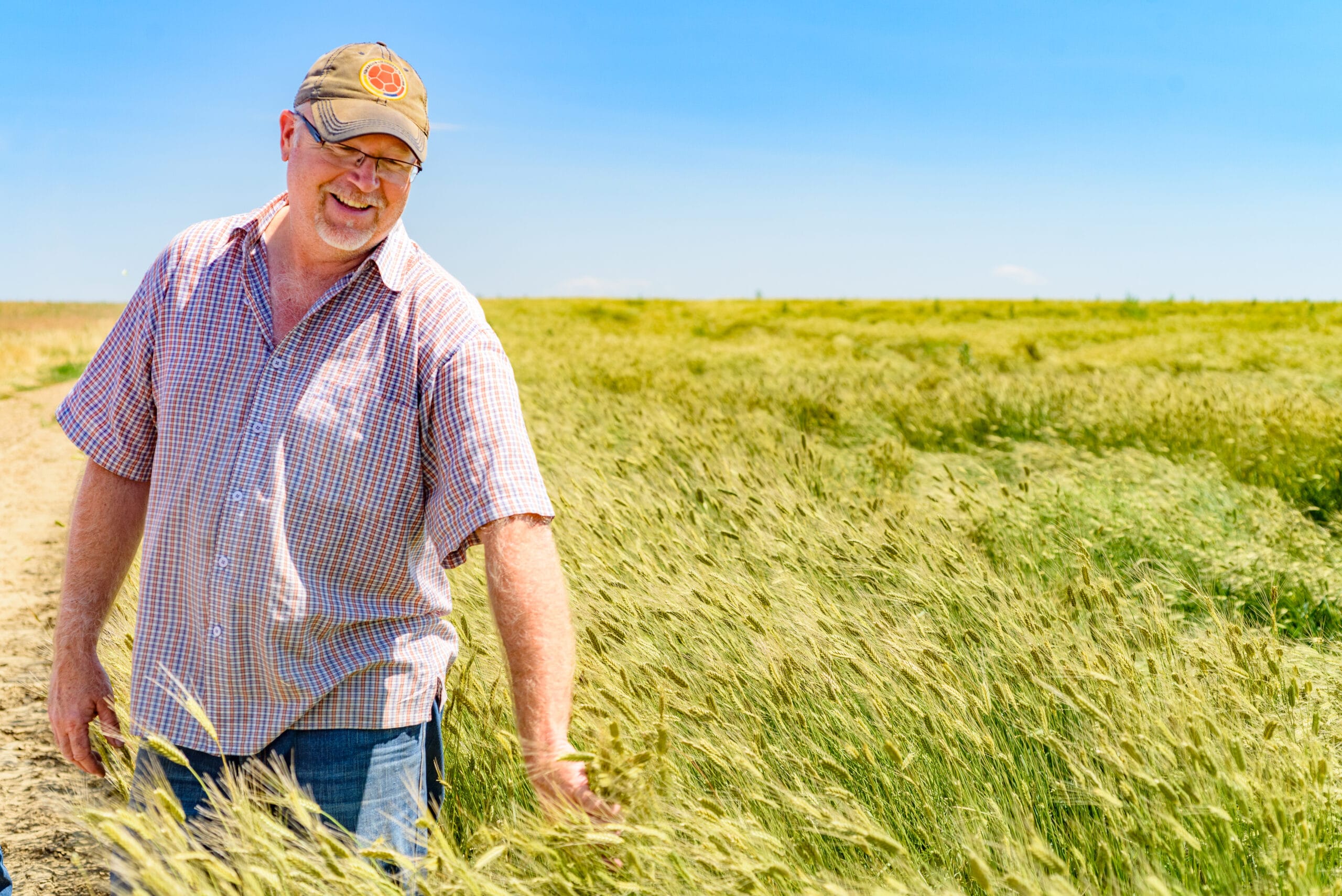
Brad standing in his field of Organic Einkorn in Washington State. Photo Credit: Ninh Khuu
Like us, Brad Bailie has supplemental irrigation and grows heavy cover crops for nutrient needs. He uses specialized tillage equipment that enables him to incorporate these crops – as much as two tons to the acre – into the soil with just one pass. Reduced tillage increases soil biology. By minimizing tillage one minimizes damage to soil structure, and this allows all the fungi and other creepy crawlies to more easily thrive.
Blaine and son Kent have practiced true Regenerative Agriculture for years. Defined as closing the agricultural loop, nothing comes from off-farm in terms of supplemental nutrition other than cattle for mob-grazing cover crops. Their very large, non-irrigated, multi-crop organic farm has built up the soils and soil biology not only with vast rotations and minimum tillage, but also with grain harvesting techniques that maximizes standing straw height. The tall straw protects the soils with shade for following crops, while capturing more moisture in the winter and reducing soil erosion. These benefits do not appear overnight, however. Truth to tell, this process takes many, many years of experimentation, investment, innovation and, did we mention, dedication! However, once the pendulum swings past a certain point, most investment may be realized and in many cases, production costs begin to decrease.
Like Bluebird, neither of our partner farms would ever consider doing it another way.
Cover Crops
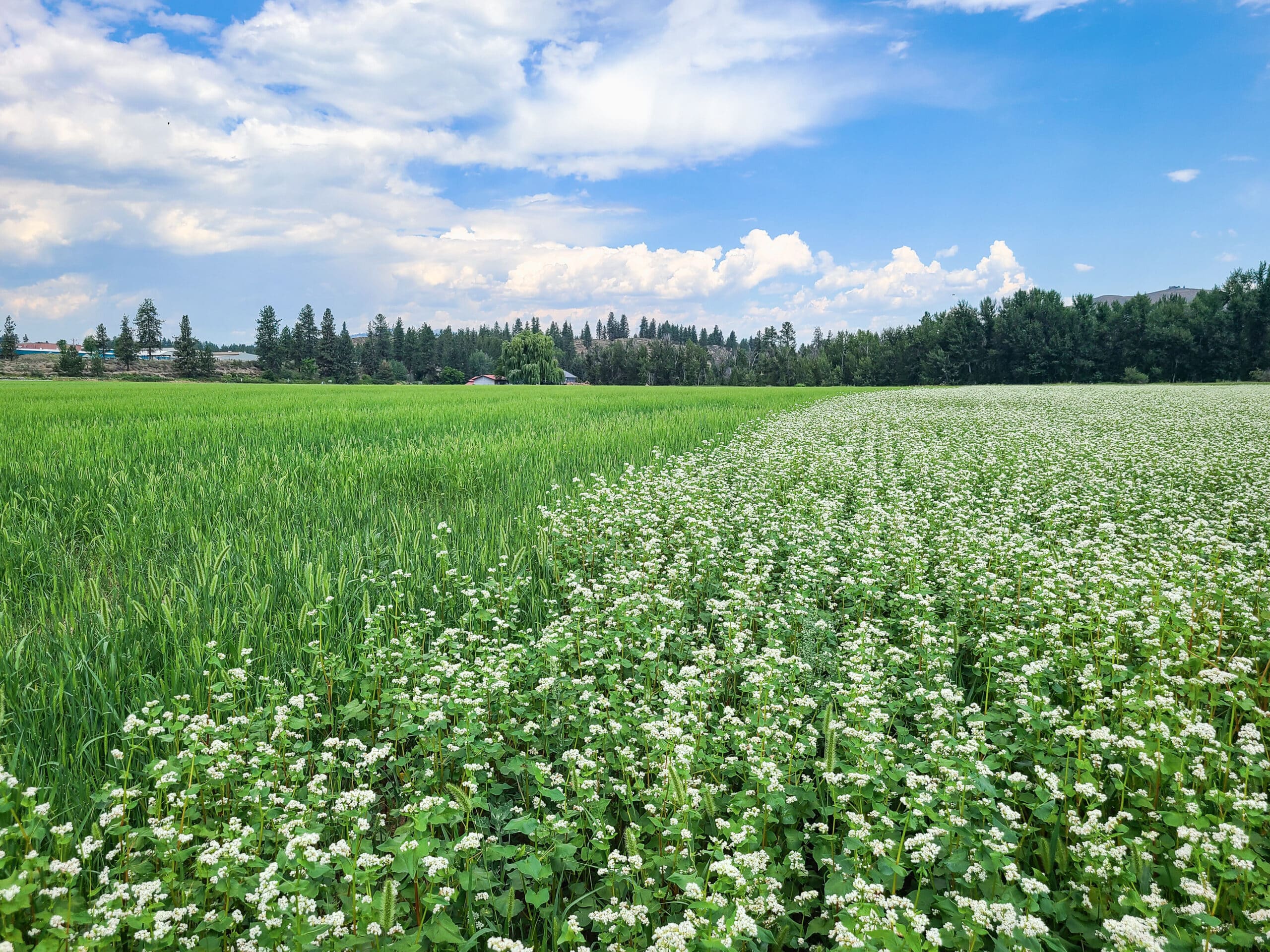
Buckwheat (right) planted alongside Einkorn (left) to build soil health and attract pollinators at Bluebird Grain Farms, Washington State.
Because we operate under an intensive organic farming system, we plant a variety of cover crops such as Flax, Buckwheat, Mustard, Clover, Vetch and Peas. Cover crops are planted during both spring and fall depending on the rotation that year, and tilled into the soil before they set seed. Cover Crops are considered a “green manure” to increase soil fertility for the next year’s growing cycle.
Community
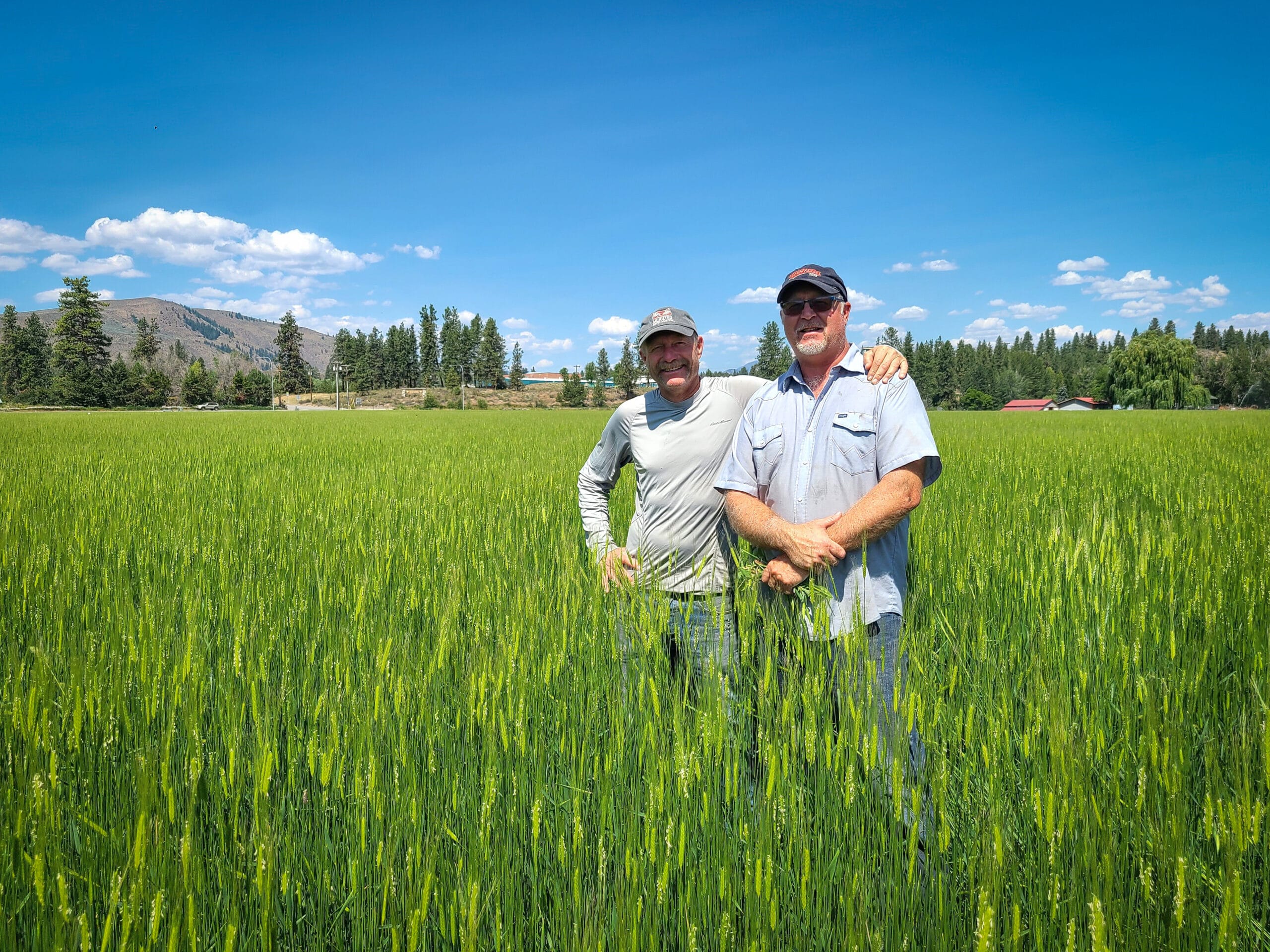
Farmer Brad and farmer Sam checking out the Einkorn crop at Bluebird Grain Farms, Washington State.
Sharing the love of the land is one thing. Equally important is the sharing of knowledge and interest. We feel blessed indeed to have followed this path and to be working with these other accomplished growers. We think our community of expertise in organic and regenerative practices shows in our consistently nutritious products, while taking it easy on the countryside and hopefully leaving it in better shape for future generations.
